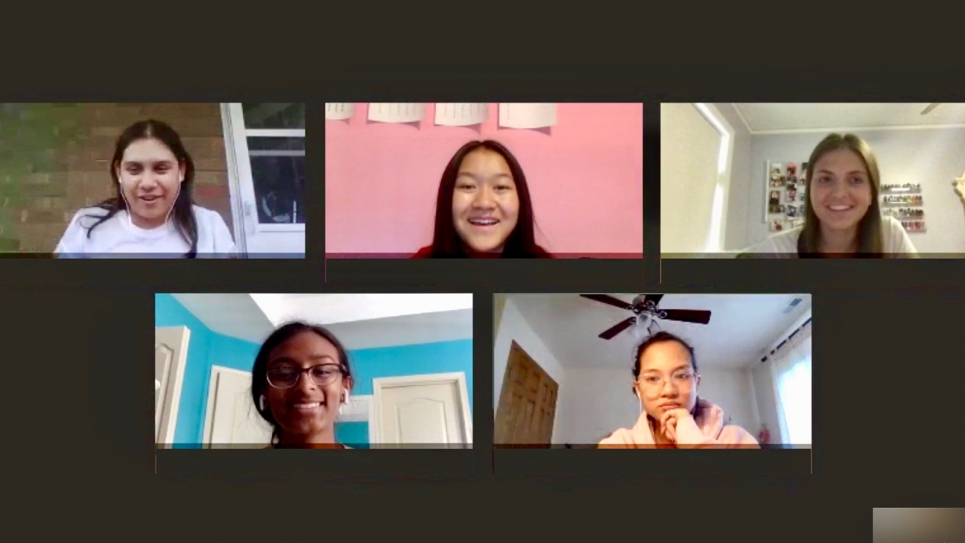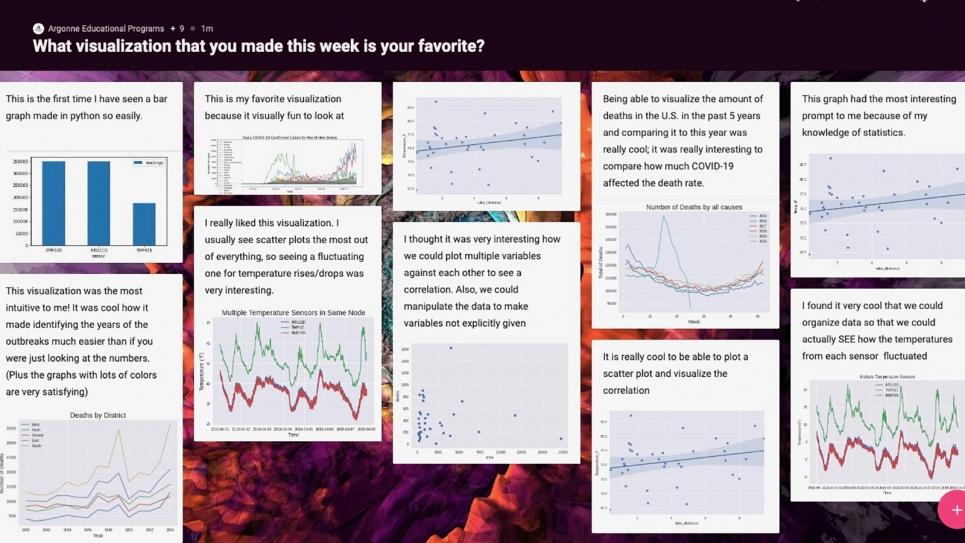“Big Data Camp is aimed at juniors and seniors so we can help them realize how their STEM skills have potential use beyond the classroom, just as they are preparing to take the next big steps in their academic and professional journeys,” explained Learning Center Lead John Domyancich. “Since we needed to change to a virtual summer camp due to COVID-19, we decided to connect the camp’s activities to the pandemic by showing how researchers have used data to understand the patterns of past pandemics.” Therefore, in addition to using the Array of Things and Sage projects to investigate real-world cases, the students tackled new exercises.
Utilizing the historical data collected during London’s 19th century cholera outbreaks, students learned how careful data analysis helped medical researchers like John Snow determine how the disease spread and how to stop it. These pandemic exercises were entirely new for Big Data Camp, but they proved popular with campers.
“I really enjoyed the John Snow exercise because it actually showed how this stuff can be used in everyday life, and it brought together everything we were learning,” shared a student.
In addition to learning and practicing new data skills, students worked on their own data collection projects. They gathered and analyzed real-world data, covering topics ranging from international military spending to Uber and Lyft comparisons to the chemistry of southern U.S. waters. They then presented their findings through graphs and other interactive tools on the last day.
“It’s incredible work and really, really neat,” said Domyancich after viewing some of the presentations. “It shows what you can do to make data not just visual, but also interactive.”
At the end of the camp, students expressed their great appreciation for Big Data Camp, from the group projects to the guest speakers to the daily data exercises. “I really enjoyed the camp and appreciate the time taken to make it work online rather than canceling the program. I learned a new coding language, and this camp has sparked my interest to pursue learning Python at a more complete level,” a student said. “I am glad I had my first exposure to big data through Argonne, since I know how vital processing data is in nearly every STEM field.”
Campers also warmly thanked the many volunteers from across the lab for creating the amazing experience. “Thank you to all the mentors and instructors that took part in the camp!” one student stated. “You guys were very helpful and understanding whether we needed help solving a difficult problem or just resolving some technical issues. It was a blast getting to know and work with you all.” Argonne maintains a vibrant volunteer community, and their support has been fundamental in creating new virtual programs to educate youth and positive communities for future STEM leaders.
This work was supported in part by the U.S. Department of Energy, Office of Science, Office of Workforce Development for Teachers and Scientists (WDTS).
The Argonne Leadership Computing Facility provides supercomputing capabilities to the scientific and engineering community to advance fundamental discovery and understanding in a broad range of disciplines. Supported by the U.S. Department of Energy’s (DOE’s) Office of Science, Advanced Scientific Computing Research (ASCR) program, the ALCF is one of two DOE Leadership Computing Facilities in the nation dedicated to open science.
Argonne National Laboratory seeks solutions to pressing national problems in science and technology. The nation’s first national laboratory, Argonne conducts leading-edge basic and applied scientific research in virtually every scientific discipline. Argonne researchers work closely with researchers from hundreds of companies, universities, and federal, state and municipal agencies to help them solve their specific problems, advance America’s scientific leadership and prepare the nation for a better future. With employees from more than 60 nations, Argonne is managed by UChicago Argonne, LLC for the U.S. Department of Energy’s Office of Science.
The U.S. Department of Energy’s Office of Science is the single largest supporter of basic research in the physical sciences in the United States and is working to address some of the most pressing challenges of our time. For more information, visit https://energy.gov/science.

